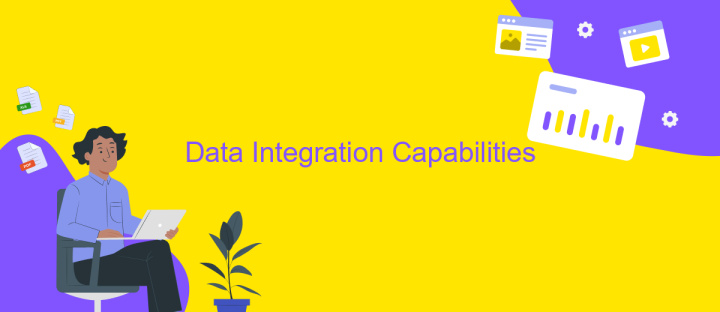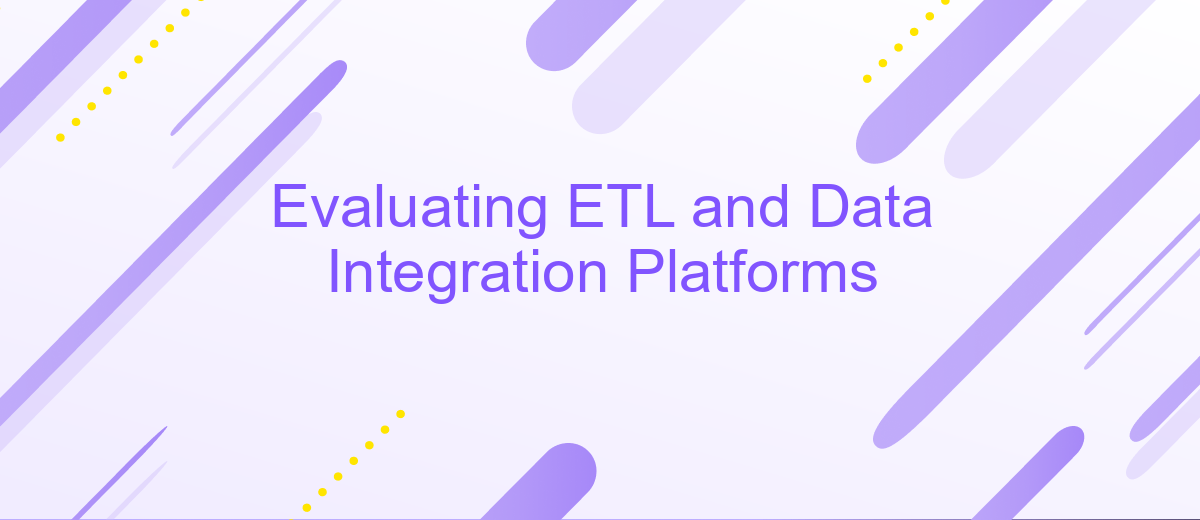Evaluating ETL and Data Integration Platforms
In today's data-driven world, effective data integration and ETL (Extract, Transform, Load) processes are crucial for businesses aiming to leverage their data assets. This article evaluates various ETL and data integration platforms, examining their features, performance, and suitability for different organizational needs. By understanding these tools, companies can make informed decisions to enhance their data management strategies and drive better business outcomes.
Introduction
In today's data-driven world, the ability to efficiently extract, transform, and load (ETL) data is crucial for businesses aiming to leverage their data assets. ETL and data integration platforms play a pivotal role in managing data workflows, ensuring data quality, and enabling seamless data movement across disparate systems.
- Streamlined data processing
- Enhanced data quality and consistency
- Improved data accessibility and integration
- Scalability and flexibility in handling large datasets
One notable solution in this domain is ApiX-Drive, a platform designed to simplify the integration of various applications and services. By automating data workflows and offering a user-friendly interface, ApiX-Drive enables organizations to connect their systems effortlessly, ensuring that data flows smoothly and efficiently. This introduction highlights the importance of evaluating ETL and data integration platforms to make informed decisions that align with business needs and objectives.
Evaluating Key Features

When evaluating ETL and data integration platforms, it's crucial to consider their ability to handle diverse data sources and formats. The platform should seamlessly integrate with various databases, cloud services, and APIs, ensuring smooth data flow across different systems. A robust platform will offer extensive connectors and support for both structured and unstructured data, enabling comprehensive data integration and transformation.
Another key feature to assess is the platform's scalability and performance. It should efficiently process large volumes of data in real-time or batch mode, depending on your needs. User-friendly interfaces and automation capabilities, like those offered by ApiX-Drive, can significantly enhance productivity by simplifying the setup and management of data workflows. Additionally, security features such as data encryption and access controls are essential to protect sensitive information during the integration process.
Data Integration Capabilities

Data integration capabilities are essential for modern businesses to streamline their operations and ensure seamless data flow across various systems. Effective data integration platforms provide a comprehensive suite of tools and features to manage, transform, and synchronize data from disparate sources, enhancing overall data quality and accessibility.
- Data Connectivity: The ability to connect to a wide range of data sources, including databases, cloud services, and APIs.
- Data Transformation: Tools to clean, enrich, and transform data to meet business requirements.
- Real-time Integration: Support for real-time data processing and synchronization to ensure up-to-date information.
- Scalability: Capability to handle large volumes of data and scale as the organization grows.
- Monitoring and Management: Comprehensive monitoring tools to track data flows and ensure data integrity.
Platforms like ApiX-Drive excel in providing robust data integration capabilities by offering easy-to-use interfaces and extensive connectivity options. With ApiX-Drive, businesses can automate data workflows, reduce manual intervention, and improve overall efficiency. By leveraging such platforms, organizations can ensure that their data integration processes are both reliable and scalable, supporting their evolving needs.
ETL Functionality

When evaluating ETL (Extract, Transform, Load) functionality, it is essential to consider how effectively the platform handles data extraction from diverse sources. The platform should support a wide range of data formats and sources, including databases, APIs, and flat files, ensuring seamless integration across various systems.
Transformation capabilities are another critical aspect. The platform must offer robust tools for data cleansing, enrichment, and transformation to ensure data consistency and accuracy. This includes functionalities like data filtering, aggregation, and joining from multiple sources.
- Data extraction from multiple sources
- Comprehensive data transformation tools
- Seamless data loading into target systems
Finally, the loading process should be efficient and reliable, allowing data to be transferred into target systems with minimal latency and error. Platforms like ApiX-Drive can simplify these processes by providing pre-built connectors and automation tools, reducing the complexity of setting up integrations and ensuring smooth data flow.
Data Profiling and Quality
Data profiling and quality are critical components in evaluating ETL and data integration platforms. Data profiling involves analyzing the source data to understand its structure, content, and interrelationships. This step helps identify data anomalies, inconsistencies, and patterns that could affect the integration process. Effective data profiling ensures that data is accurate, complete, and reliable before it is transformed and loaded into the target system. Tools and platforms that offer robust data profiling capabilities can significantly streamline this process, ensuring high-quality data integration.
Maintaining data quality is essential for the success of any data integration project. Poor data quality can lead to incorrect insights and business decisions. ETL and data integration platforms must provide features for data cleansing, validation, and enrichment to ensure that the data meets the required standards. Services like ApiX-Drive can facilitate these processes by offering seamless integration and automation capabilities. ApiX-Drive helps in setting up data workflows that automatically clean and validate data, ensuring that only high-quality data is integrated into your systems. This enhances the overall reliability and effectiveness of the data integration efforts.
FAQ
What is ETL and why is it important?
How do I choose the right ETL platform for my business?
Can ETL platforms handle real-time data integration?
What are the benefits of using an automated integration service?
How can I ensure data security during the ETL process?
Time is the most valuable resource for business today. Almost half of it is wasted on routine tasks. Your employees are constantly forced to perform monotonous tasks that are difficult to classify as important and specialized. You can leave everything as it is by hiring additional employees, or you can automate most of the business processes using the ApiX-Drive online connector to get rid of unnecessary time and money expenses once and for all. The choice is yours!

